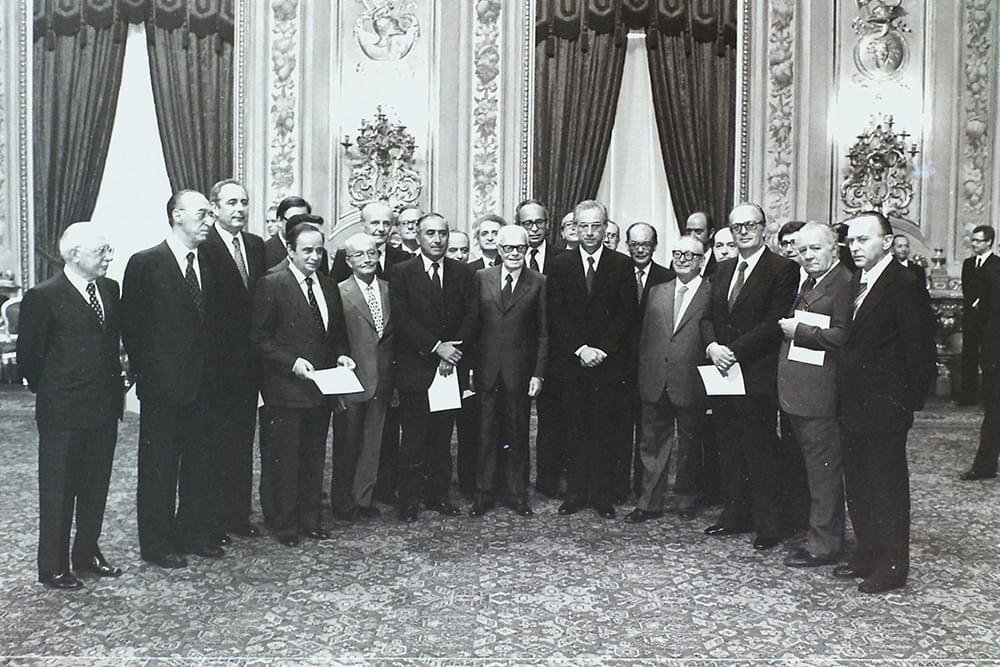
Francesco Cossiga was a prominent figure in Italian politics, whose influence spanned several decades. Born on July 26, 1928, in Sassari, Italy, he left an indelible mark on the country's political landscape, serving as President, Prime Minister, and Minister of the Interior. In this 2000-word article, we will explore the life and legacy of Francesco Cossiga, delving into his early life, political career, and contributions to Italy's democracy.
Francesco Cossiga's journey in the world of politics was deeply rooted in his early life and education. He came from a middle-class family in Sardinia and attended the prestigious Sapienza University of Rome, where he studied law. His education instilled in him a strong sense of civic duty and a passion for politics, setting the stage for his future career.
Cossiga's political career began when he joined the Christian Democracy Party (DC) in the 1950s. The DC was a dominant force in Italian politics during this period, and Cossiga quickly rose through the party's ranks, thanks to his sharp intellect and strong communication skills. His political acumen and oratory skills earned him recognition, and he was elected to the Italian Parliament in 1958, representing Sassari.
Throughout the 1960s and 1970s, Cossiga's influence within the Christian Democracy Party continued to grow. He held various positions within the party, including serving as Minister of the Interior, where he tackled critical issues like law and order, immigration, and security. His pragmatic approach to governance and his ability to reach across the political spectrum made him a highly regarded figure within the DC.
In 1979, Francesco Cossiga achieved a significant milestone in his political career when he was appointed as the Prime Minister of Italy. This was a pivotal moment in the country's political history. As Prime Minister, Cossiga faced several pressing challenges, both domestically and internationally.
One of the defining moments during Cossiga's tenure as Prime Minister was the tragic Bologna railway station bombing in 1980, a terrorist attack carried out by far-left extremists. The attack resulted in numerous casualties, and Cossiga's government was tasked with addressing the crisis. His response to this act of terrorism was marked by firm resolve and a commitment to upholding the rule of law, which earned him the respect of many Italians.
Cossiga's tenure also saw economic challenges, as Italy grappled with inflation and a growing public debt. He implemented a series of economic reforms aimed at stabilizing the country's finances, which were crucial for Italy's economic well-being in the years to come.
As Prime Minister, Cossiga's commitment to Italy's place in the international community was evident. He was known for his engagement in foreign affairs, and during his tenure, Italy played a prominent role in international diplomacy. He promoted the values of democracy and freedom on the global stage, establishing strong relations with other European nations and beyond.
After his term as Prime Minister, Francesco Cossiga continued to make significant contributions to Italian politics. In 1985, he was elected as the President of the Republic, the ceremonial head of state. This position held a different set of responsibilities and allowed Cossiga to shape Italy's political landscape in a unique way.
As President, Cossiga played a key role in fostering stability and unity within the Italian political system. Italy had been experiencing a period of political instability, with frequent changes of government. Cossiga used his influence to mediate and guide the political process, ultimately helping to maintain a sense of continuity in government.
Cossiga was also known for his commitment to the principles of democracy. He firmly believed in the importance of the rule of law, freedom of the press, and the protection of individual rights. His presidency was marked by a commitment to upholding and safeguarding the democratic values enshrined in the Italian Constitution.
Throughout his time as President, Cossiga was deeply involved in foreign affairs, advocating for Italian interests on the global stage. He played a crucial role in strengthening Italy's relations with other countries and promoting international cooperation.
Francesco Cossiga's influence extended beyond Italy's borders. He was a staunch advocate for European integration and played a significant role in advancing the cause of European unity.
Cossiga's support for the European project was evident during his time as President of the Republic. He saw European integration as a means to prevent conflicts like those that had plagued Europe in the past. He believed that a unified Europe could promote peace, stability, and economic prosperity.
Cossiga was involved in key European developments during his presidency, including Italy's active participation in the European Communities, the precursor to the European Union. He also worked to strengthen Italy's partnership with other European nations, contributing to the development of a united European front.
Francesco Cossiga's political career left a profound impact on Italy's political landscape. He is remembered as a statesman who navigated the country through challenging times, addressing issues of security, economic stability, and political cohesion. His commitment to democratic values and European integration helped shape Italy's role on the global stage.
Cossiga's legacy is also characterized by his role in mediating political disputes, helping to bridge the divides within Italian politics. His ability to work across party lines and find common ground was crucial in maintaining political stability during his time in office.
Furthermore, Cossiga's commitment to the rule of law and individual rights has left a lasting influence on the Italian political system. His unwavering support for democracy and freedom remains a cornerstone of Italy's political culture.
Francesco Cossiga was a prominent figure in Italian politics, whose contributions to the nation's political landscape spanned several decades. His journey from a young law student to becoming the Prime Minister and later the President of the Republic reflects a life dedicated to public service.
Cossiga's legacy is one of political leadership, democratic values, and a commitment to European integration. His impact on Italy's politics, economy, and foreign relations is still felt today, and his contributions continue to shape the nation's political discourse.

More Details